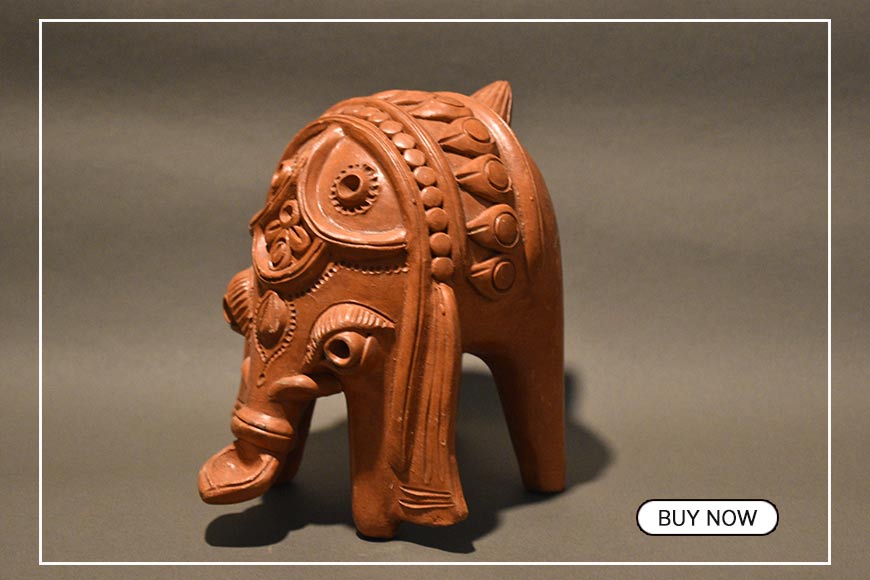Why are so many of us in COVID denial?
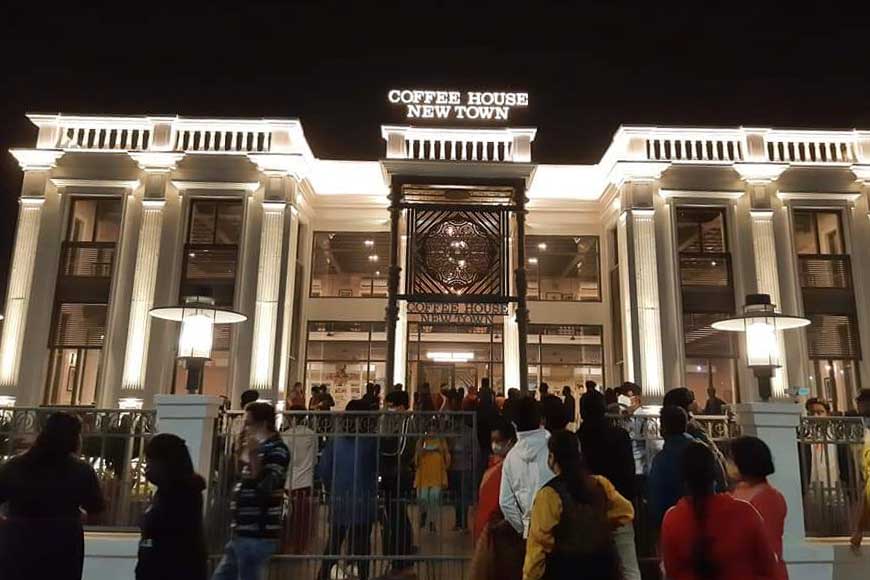
India has recorded more than 1.03 crore confirmed COVID-19 cases and 1.49 lakh coronavirus-related deaths so far. A fresh wave of the infected, possibly bearing the new strain of the virus, have made their way into the country from the UK. As of this morning, that is, January 6, 2021, Bengal has reported 24 more COVID-19 deaths, with 812 fresh cases. South Africa has become among the first nations to issue an alert that the second wave of the virus seems to be pushing younger patients into intensive care units. A recent study has found that the new variant of COVID-19 is ‘hugely’ more transmissible than the previous version. And research has failed to prove that if you get COVID once, you can’t get it again.
So how do we explain the fact that 55,000 people thronged to Eco Park in Rajarhat on Christmas Day? Or that nearly 11,000 gathered at Alipore Zoo on New Year’s Day? Pre-Durga Puja shopping in Kolkata saw hordes of people making fierce attempts to buy shoes at a renowned store as though they were the last shoes on earth.
These are grim statistics. And all of this data, literally all of it, is available in the public domain. Whether you get your news digitally or through a physical newspaper, you ought not to be able to avoid the data bombardment. In short, no matter how much you wish it away, not only is COVID not going anywhere anytime soon, but it may actually get a lot worse. And by now, having lived with it for a year, all of us know what we need to do to protect ourselves as much as possible.
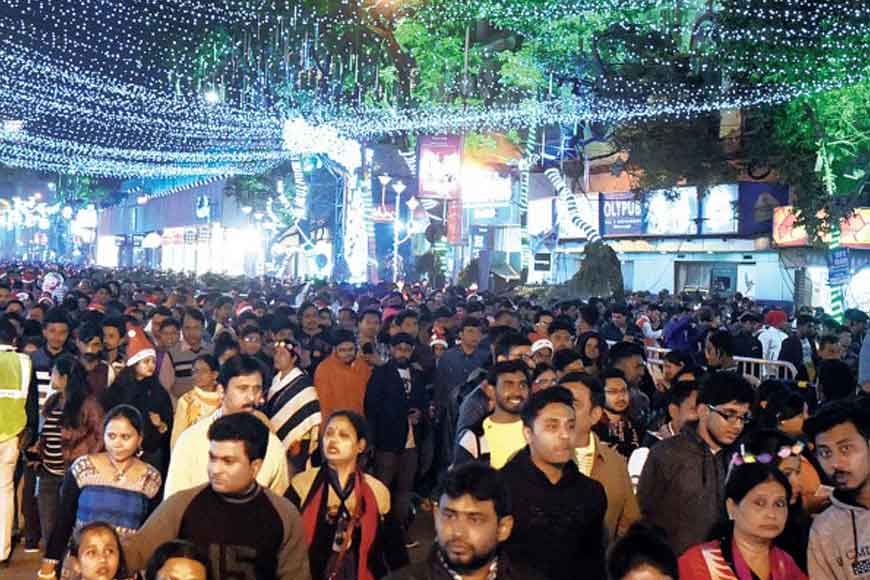 Park Street, Kolkata
Park Street, Kolkata
So how do we explain the fact that 55,000 people thronged to Eco Park in Rajarhat on Christmas Day? Or that nearly 11,000 gathered at Alipore Zoo on New Year’s Day? Pre-Durga Puja shopping in Kolkata saw hordes of people making fierce attempts to buy shoes at a renowned store as though they were the last shoes on earth. Durga Puja itself had to be made inaccessible to the general public through a High Court order. On Christmas Day, revellers wearing manic grins instead of masks crowded Park Street, determined to enjoy the festival even if it were to be their last.
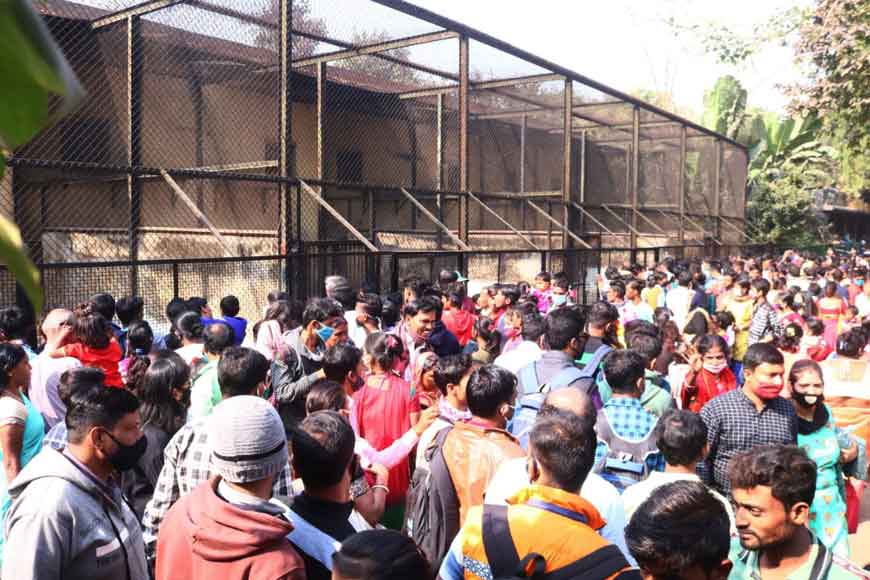 Zoological Garden Alipore, Kolkata
Zoological Garden Alipore, Kolkata
Given the quantum of alarming data available, it’s difficult to imagine that anyone could really ignore the danger of the coronavirus or imagine that they are somehow immune to it. And yet, the streets of Kolkata, as many other cities of the world, are overflowing with the mask-less millions, grimly sure that COVID is something that happens only to other people. The more the evidence to the contrary stares them in the face, the more determined they are to ignore it.
Why aren’t we paranoid? Why isn’t the fear of infection and possible death paralysing us? Despite clear warnings and scientific evidence that wearing masks and practising social distancing are, as of now, the best weapons to contain the virus, we have merrily begun going out for meals with pals, inviting folks to our weddings, and paying social visits, taking off our masks at the first possible opportunity.
In the rest of Bengal, popular seaside resorts such as Digha and Mandarmani overflowed with tourists during the Puja and Christmas breaks, and the hills of North Bengal were taken aback as noisy holidaymakers descended upon them by the hundreds. And this, when trains and flights are not operating at full capacity, neither is road transport as readily available as usual.
Why aren’t we paranoid? Why isn’t the fear of infection and possible death paralysing us? Despite clear warnings and scientific evidence that wearing masks and practising social distancing are, as of now, the best weapons to contain the virus, we have merrily begun going out for meals with pals, inviting folks to our weddings, and paying social visits, taking off our masks at the first possible opportunity. If someone asks, we are airily declaring that small gatherings are surely safe, with absolutely nothing to support this belief.
 Park Street, Kolkata
Park Street, Kolkata
Granted, in Bengal at any rate, many people are travelling to work, and the dense crowds in the limited number of operational buses and trains make social distancing a laughable prospect, but even among these unfortunate souls, the wearing of masks seems to rank as a superfluous activity. Inexplicably, the feeling seems to be, “We’re out in the open anyway. What’s the point of a mask?” Also, the crowds at shops and restaurants and other public places mean that the economy will be saved from utter ruin, but what stops us from striking a balance?
Also read : When marriage and job promises are used as baits
The whole point is the mask. Not a mask under the chin, or dangling from one ear, or under the nose, but a mask properly covering nose and mouth. Once again, countries with some of the lowest COVID-related death rates in the world are those in Southeast Asia, such as Japan and Vietnam. Wiser from their experience with the SARS virus, people in these countries have made permanent changes to their lifestyles. For instance, it is very common to find them using their knuckles to press a switch or an elevator button, instead of their fingertips. Wearing masks is more a norm than an exception, while any sign of influenza-like symptoms is treated with the respect it deserves.
COVID fatigue or COVID denial? Steven Taylor, a professor and clinical psychologist at the University of British Columbia, recently told the Huffington Post, “Many people have what’s called an unrealistic optimism bias. It’s a tendency to underplay threats and to see yourself as being more impervious than the average person.”
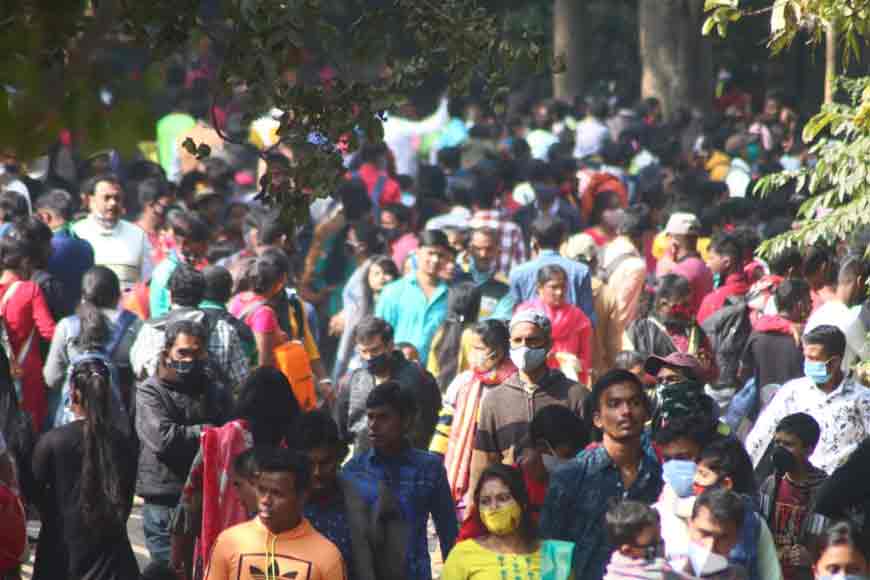 Zoological Garden Alipure, Kolkata
Zoological Garden Alipure, Kolkata
While denial might actually help us deal with the early stages of a crisis, by preventing us from giving in to panic and despair, long-term denial can only end in disaster, the signs of which are all around us. Instead of behaving like children confronted with seemingly unsolvable problems, we need to give in to the sadness and grief we have experienced, and taking protective action against it. From heads of state to silver screen stars to the homeless, COVID has already shown that it will spare no one, and that it doesn’t affect everyone identically. While your neighbour survived, you may well end up in a plastic bag headed for a lonely funeral.
Perhaps more than medical care, what a large section of our population needs now is psychological looking after?







